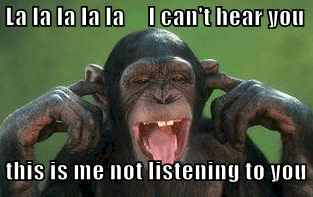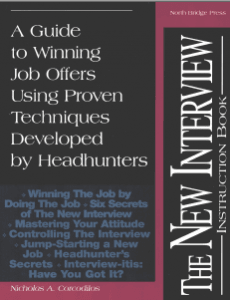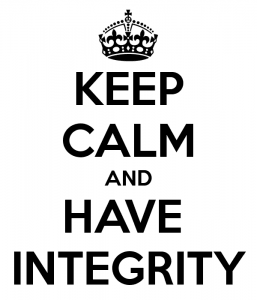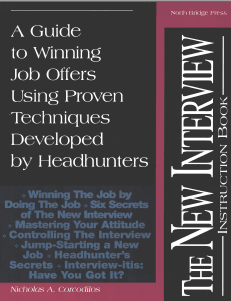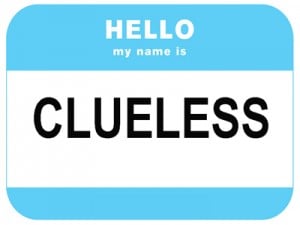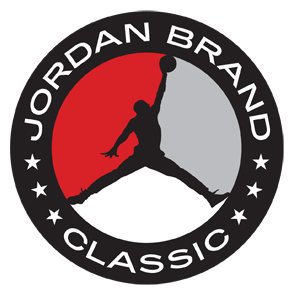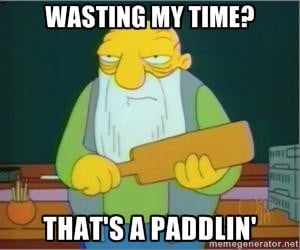In the November 10, 2015 Ask The Headhunter Newsletter, we look at the best of 600 editions!
Question
I’ve been reading your Ask The Headhunter newsletter for a long time. Before that, I remember your forum on The Motley Fool going back into the 1990s! I have no idea how many questions you’ve answered in all those years, but I wanted to ask you — is there any topic you have not covered? What’s your favorite topic or Q&A? Thanks for sharing so much good advice all these years and for doing it for free!
Nick’s Reply
Thanks for following Ask The Headhunter for so long! I stopped counting the questions I’ve answered after 40,000. (Yes, I typed all the replies myself! Ouch!) I’ve been saving your note for a good occasion, and this is it.
 I published the first Ask The Headhunter Newsletter on September 20, 2002. Ask The Headhunter first went online on January 17, 1995 — on Prodigy, if any of you remember that partnership between IBM and Sears Roebuck! But the newsletter actually debuted in November 1999, when TechRepublic licensed a Q&A feature from me for several years. That version of the newsletter was daily!
I published the first Ask The Headhunter Newsletter on September 20, 2002. Ask The Headhunter first went online on January 17, 1995 — on Prodigy, if any of you remember that partnership between IBM and Sears Roebuck! But the newsletter actually debuted in November 1999, when TechRepublic licensed a Q&A feature from me for several years. That version of the newsletter was daily!
I had such a good time producing it that I decided to continue it on my own — and over 10,000 subscribers immediately followed from TechRepublic. Today that list is huge, and this marks the 600th weekly edition. I couldn’t do any of this without the great questions from subscribers!
I don’t really have any favorite editions of my own, but there are several Ask The Headhunter articles and newsletters that I think are fundamental to what ATH is all about — so I thought it might be worth re-capping some of the “best of Ask The Headhunter.” I hope you enjoy this as much I’ve enjoyed putting it together! (And I hope you get a kick out of the series of mugshots I’ve used in the newsletter through the years!)
The Basics
If you’re new to Ask The Headhunter, this is a great place to start: The Headhunter’s Basics: Job hunting with the headhunter. This core set of articles explains:
- What’s wrong with the employment system
- How to use the strategy headhunters use — yourself!
- What employers really want — and it’s not your interview skills!
- The mistakes that will sink your job search
- How to be the profitable hire that all good employers want
Resume Blasphemy
 I think my best article might be one I avoided writing for years. People kept asking, How can I write a really great resume that will get me a job?
I think my best article might be one I avoided writing for years. People kept asking, How can I write a really great resume that will get me a job?
I’m not a fan of resumes. In fact, I think a resume is the worst crutch you can use when job hunting. But I realized that if I can’t answer this very popular question in some useful way, I have no right to publish Ask The Headhunter. Resume Blasphemy challenges you in a way that — if you do this exercise thoughtfully — will make you throw your resume away and forever change how you search for a job.
Free?
I’d like to set one thing straight. Yes, Ask The Headhunter is and continues to be free — the website, the blog, the newsletter. Literally thousands of pages of advice, tips and insights about job hunting, hiring and success at work.
But some stuff you do have to pay for: my PDF books, which organize my advice around specific topics in depth and detail. These books help offset the cost of producing all the free content you find on Ask The Headhunter — but so do the many clients who have licensed Ask The Headhunter features over the years. I’m grateful to every client and customer who has ever spent a buck on what I write!
Which brings us to perhaps the most powerful Ask The Headhunter advice of all.
Eliminate job search obstacles
 When I compiled the 251-page PDF book Fearless Job Hunting, my goal was to help job seekers realize that job hunting is not about “following the steps.” If following steps worked, everybody could get a job easily and quickly. What I’ve learned over the years is that your success depends on knowing what to do when you encounter one of a small number of daunting obstacles that get in your way. Don’t let these stop you from landing the job you want!
When I compiled the 251-page PDF book Fearless Job Hunting, my goal was to help job seekers realize that job hunting is not about “following the steps.” If following steps worked, everybody could get a job easily and quickly. What I’ve learned over the years is that your success depends on knowing what to do when you encounter one of a small number of daunting obstacles that get in your way. Don’t let these stop you from landing the job you want!
Most of the time, the biggest obstacle you face in your job search is Human Resources departments, which seem to go out of their way to block, stop, and abuse you. The best newsletter I wrote about this is Why HR should get out of the hiring business. I think some of my best advice about how to go around HR is from this edition of the newsletter: Should I accept HR’s rejection letter?
Getting in the door
Speaking of throwing out your resume and busting past HR, this is one of the simplest, most powerful methods for landing a job that you’ll find on Ask The Headhunter: Skip The Resume: Triangulate to get in the door. It’ll take you out of the silly “job hunting” mode HR wants you in — and it’ll get you talking to the people who will actually bring you into a company as a new hire!
One of the Fearless Job Hunting books, Book 3: Get in The Door (way ahead of your competition) goes into lots more detail about this.
Oh, those job interviews!
 So much has been written about what to say and do in job interviews that today it’s all one big rehash. Virtually every career pundit regurgitates the same old ideas that have been around for decades — ideas that reek of personnel jockeys who want to “process” you rather than hire you.
So much has been written about what to say and do in job interviews that today it’s all one big rehash. Virtually every career pundit regurgitates the same old ideas that have been around for decades — ideas that reek of personnel jockeys who want to “process” you rather than hire you.
This article is so obvious that you’ll “get it” instantly: The Single Best Interview Question… And The Best Answer. But beware: Doing this kind of preparation to win a job offer is a lot of work. And if you’re not willing to do the work to win the job, you don’t deserve the job!
No one has said it better than long-time Ask The Headhunter subscriber Ray Stoddard:
“The great news about your recommendations is that they work. The good news for those of us who use them is that few people are really willing to implement what you recommend, giving those of us who do an edge.”
Arrghhh! I took the wrong job!
My goal all these years has been to help you land and keep the right job. But what no one else tells you is how to avoid the wrong jobs!
Before you accept a new job, check It’s the people, Stupid and — yuck — Don’t suck canal water. I keep telling you that the #1 reason people go job hunting is because they took the wrong job to begin with. Don’t fall into that trap!
 Everybody wants more money!
Everybody wants more money!
Of course, no matter what anybody says about the importance of job satisfaction, nobody’s happy without the money. Everybody would like more money — but few people know how to ask for it so the answer will be YES.
The ONLY way to ask for a higher job offer is not for the meek. It’s as big a challenge as proving you’re worth hiring. But, hey — I never said Ask The Headhunter is the easy way to the job you want. It’s just the best way I know.
The bottom line
I’ll leave you with one of my favorite quotes, which once led me to the realization that, as humans, our biggest problem is our hesitation. Life is short. I try to remind myself of this every day: You’ll be dead soon. It’s how I get on with life and enjoy the choices I get to make!
I hope Ask The Headhunter helps you belly up to the bar to make the choices you face — to enjoy the results of the best and to learn from the rest.
The Best of Ask The Headhunter
Thanks for subscribing and for being a part of Ask The Headhunter, whether you’ve been around from the start or you just dropped in!
The best of Ask The Headhunter isn’t in any of the newsletters or in any of my articles. The best of Ask The Headhunter is the wonderful community of people who continue to gather here to share their stories, advice, wisdom and more questions from their own experience. That’s you!
Thanks to you all!
And to prove it, I’d like to offer you a Special 600th Edition Thank You. If you’d like to purchase any of the Ask The Headhunter PDF books, when you check out, use discount code=BIG600 to save 25% off your purchase! (This limited offer is good only through this week!)
If I may ask you a 600th edition favor:
Please tell your friends about Ask The Headhunter — encourage them to subscribe and join us every week!
As for questions we’ve never covered, this is where to post them! I invite you to ask the questions you want answers to about job hunting, hiring, and success at work!
: :



